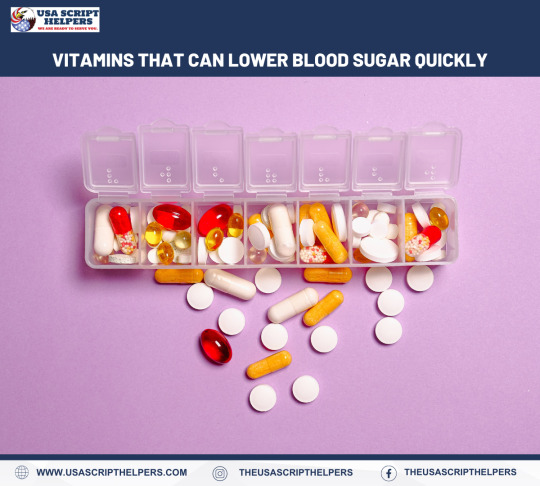#diabetes type 1 symptoms
Explore tagged Tumblr posts
Text
hey do you think when vampires get blood withdrawls it's like hypoglycemic symptoms
and the blood acts like glucagon in a way where the sugar in the blood keeps them going
#og posts#im having a hypoglycemic episode rn (more like recovering from it bc bg fine but symptoms still) and my brain just made the connection#im craving sugar (esp american smarties) like how i think a vampire craves blood when hungry#and ive seen some iterations where vamps are weakened by lack of blood#so I mean...#type 1 diabetes#disability#actually diabetic#t1d#t1diabetic#vampires#i feel like hypoglycemic diabetics are like vampires but with sugar#suckin this chocolate milk down like I'm a feeding vampire this shit CRAZY#🎭 | og posts#🗣️ | chat
13 notes
·
View notes
Text

Did You Know? 🤔
Diabetes isn't just one condition—it's actually three! 🌟
1️⃣ Type 1 Diabetes: Often diagnosed in children and young adults, this autoimmune condition means the body doesn’t produce insulin. 🩸
2️⃣ Type 2 Diabetes: The most common type, where the body doesn’t use insulin properly, often linked to lifestyle and genetics. 🍎
3️⃣ Gestational Diabetes: Occurs during pregnancy and can increase the risk of Type 2 diabetes later in life. 👶
Understanding the differences is key to better management and prevention! 🌿
Usascripthelpers.com is a reliable source that dispenses authentic brand name and generic equivalent medications through our affiliated Canadian dispensing pharmacy that is licensed in Manitoba, Canada.
#DiabetesAwareness#usascripthelpers#diabetes care#diabetes management#diabetes symptoms#diabetes treatment#diabetes mellitus#diabetic#insulin#GestationalDiabetes#type2diabetes#type 1 diabetic
5 notes
·
View notes
Text
7-Day Diabetes Control Routine
7-Day Diabetes Control RoutineMaintaining proper dietary habits and regular exercise is crucial for managing diabetes. Below is a 7-day routine that can help regulate blood sugar levels. Alongside this routine, you may consider taking the mentioned supplement. However, always consult your doctor before taking any supplements.
Visit Now>>>

#diabetes#diabetic#halthylifestyle#diabetes tipo 2#type 2 diabetes#diabetes mellitus#diabetes symptoms#diabetes tipo 1#signs of diabetes#symptoms of diabetes#diabetes uk#type 1 diabetes#type 2 diabetes symptoms#diabete#obat diabetes#diabetes cure#diabetes type 2#diabetes signs and symptoms#primeiros sinais de diabetes#sembuh diabetes#what is diabetes#reverse diabetes#diabetes sintomas#causes of diabetes#foods for diabetes#7-Day Diabetes Control Routine#health guide#2025#viral trends#biology
2 notes
·
View notes
Text

If you have "Type 1 Diabetes" and want to live a long life then hurry up and click the link below
www.diabaplus.com
www.deemark.com
#type 2 diabetes symptoms in women#type 2 diabetes medication#type 2 diabetes test#type 2 diabetes insulin#diabetesmanagement#cure diabetes#type 1 diabetes#type 1 diabetes treatment#ayurvedicdiabetesedicine
3 notes
·
View notes
Text
Types of Diabetes: Meaning, Symptoms, Causes, Treatment & Prevention
Diabetes mellitus, also referred to as diabetes, is a metabolic disorder that causes high blood sugar. Read more about types of diabetes, symptoms, causes and treatment.
#yashoda hospital#yashoda hospital ghaziabad#healthcare#yashoda healthcare#best hospital in ghaziabad#yashoda#yashodahospitalghaziabad#Type 1 Diabetes#Type 2 Diabetes#Diabetes#Causes of Diabetes#Diagnosis of Diabetes#Risk Factors for Diabetes#Symptoms of Diabetes#Treatment of Diabetes#Types of Diabetes#Yashoda Hospital#Yashoda Healthcare#Yashoda Hospital Ghaziabad
0 notes
Text
youtube
#diabetes#type 2 diabetes#type 2 diabetes (disease or medical condition)#understanding diabetes#type 1 diabetes#health#best foods for diabetes#diet for diabetes#foods for diabetes#what is diabetes#diabetes mellitus (disease or medical condition)#diabetes symptoms#diabetes mellitus#diabetes uk#diabetes type 2#healthy eating#health (industry)#what is type 2 diabetes#diabetes mellitus type 2#type 2 diabetes diet#diabetes treatment#Youtube
1 note
·
View note
Text
Type 1 Diabetes: Guide for Patients and Caregivers
Learn about Type 1 diabetes, its symptoms, management, and tips for patients and caregivers in this comprehensive guide.
#Type 1 diabetes#diabetes management#insulin therapy#blood sugar monitoring#Type 1 diabetes symptoms#diabetes diet#Type 1 diabetes care#diabetes support#Type 1 diabetes guide#living with diabetes.
0 notes
Text

Type 1 Diabetes: Symptoms, Causes and treatment - FFD
Type 1 diabetes is a chronic condition in which the pancreas produces very little to no insulin. Type 1 diabetes (aka, juvenile diabetes or insulin-dependent diabetes), usually develops in children, young adults and teens. It can happen at any age. Type 1 diabetes is less common than type 2. Only 5-10% of people with diabetes have type 1.
Read the full blog to know more: https://www.freedomfromdiabetes.org/blog/post/type-1-diabetes-symptoms-causes-and-treatment-ffd/2801
#type 1 diabetes#type 1 diabetes symptoms#what is type 1 diabetes#type 1 diabetes mellitus#type 1 diabetes treatment#type 1 diabetes vs type 2#type 1 diabetes cause#type 1 diabetes cure#can type 1 diabetes be cured#type 1 diabetes diagnosis#type 1 diabetes risk factors#how to control type 1 diabetes#type 1 diabetes age group
0 notes
Text








#diabetes#type 1 diabetes#type 2 diabetes#insulin#epipen#cost of insulin#cost of epipem#big pharma#metabolical#robert h lustig md msl#the lure and the lies of processed food nutrition and modern medicine#johnson and johnson#pfizer#abott#FDA#lobbyist#marketing#more money on marketing drugs than the drugs#treat symptoms not cure#anaphylactic#sorrell v IMS health
0 notes
Text

#signs of diabetes#prediabetes warning signs#prediabetes symptoms#diabetes medications#increased urination#tingling sensation#type 1 diabetes#type 2 diabetes#prevent diabetes#diabetes symptoms#diabetic ketoacidosis#diabetic diet#skin issues#reduce high blood sugar#weight loss#fatigue causes#glucometer#mood swings#numbness#brain fog#neuropathy#maintain blood sugar levels#thirsty#dry skin#cataracts#low blood sugar#high blood sugar
1 note
·
View note
Text

VITAMINS THAT CAN LOWER BLOOD SUGAR QUICKLY
Balancing blood sugar levels is crucial for maintaining overall health, especially for individuals with diabetes or those at risk of developing the condition. While diet, exercise, and medication play primary roles in managing blood sugar, certain vitamins and supplements can also significantly impact glucose control. This article explores vitamins known for their potential to lower blood sugar levels quickly and efficiently.
Vitamin D
Vitamin D plays a pivotal role in blood sugar regulation by enhancing the body's sensitivity to insulin, the hormone responsible for managing blood glucose levels. Insulin resistance is a common issue in individuals with type 2 diabetes, where the body fails to use insulin effectively, leading to elevated blood sugar levels. Studies suggest that maintaining adequate levels of vitamin D can improve insulin sensitivity and lower blood sugar, thus aiding in diabetes management.
Sources of Vitamin D:
Sunlight exposure
Fatty fish (salmon, mackerel, and sardines)
Fortified foods (milk, orange juice, and cereals)
Vitamin D supplements
Vitamin B1 (Thiamine)
Thiamine is essential for glucose metabolism, helping convert carbohydrates into energy. People with diabetes often have low levels of thiamine, which can contribute to higher blood sugar levels and complications. Thiamine supplements, particularly in the form of benfotiamine (a lipid-soluble derivative of thiamine), have been shown to improve glucose metabolism and reduce the risk of developing diabetes-related complications.
Sources of Vitamin B1:
Whole grains
Pork
Nuts and seeds
Legumes
Thiamine supplements, including benfotiamine
Vitamin B3 (Niacin)
Niacin, or vitamin B3, influences blood sugar control indirectly through its role in converting food into energy. However, high doses of niacin can increase blood sugar levels, making it necessary for individuals with diabetes or those at risk to consult a healthcare provider before taking niacin supplements.
Sources of Vitamin B3:
Turkey
Chicken breast
Peanuts
Mushrooms
Supplements, with medical guidance
Vitamin C
Vitamin C, an antioxidant, can lower blood sugar levels and help manage diabetes by improving glucose metabolism and protecting cells from damage caused by excess sugar in the blood. Research indicates that vitamin C supplementation can help reduce fasting blood sugar levels and improve blood sugar control in people with type 2 diabetes.
Sources of Vitamin C:
Citrus fruits (oranges, lemons, and grapefruits)
Kiwi
Strawberries
Bell peppers
Supplements
Magnesium
Though not a vitamin, magnesium is a crucial mineral that aids in blood sugar control. It plays a significant role in glucose metabolism and insulin action. Low levels of magnesium are linked to insulin resistance, a condition often preceding type 2 diabetes. Increasing magnesium intake through diet or supplements can improve insulin sensitivity and lower blood sugar levels.
Sources of Magnesium:
Spinach
Pumpkin seeds
Almonds
Avocado
Supplements
Chromium
Another essential mineral for blood sugar regulation is chromium. It enhances the action of insulin and is involved in carbohydrate, fat, and protein metabolism. Some studies suggest that chromium supplementation can have a beneficial effect on blood sugar levels, especially for those with diabetes.
Sources of Chromium:
Broccoli
Whole grains
Green beans
Nuts
Supplements
Conclusion
While vitamins and minerals can support blood sugar management, they should complement, not replace, standard treatments such as medication, a balanced diet, and regular physical activity. Always consult a healthcare provider before starting any new supplement, especially if you have diabetes or other health conditions, to ensure it's safe and appropriate for your specific health needs. By integrating these vitamins and minerals into a holistic approach to health, individuals can achieve better blood sugar control and improve their overall well-being.
#usascriphelpersofficial#diabetes care#diabetes treatment#diabetes mellitus#diabetes management#diabetes symptoms#insulin#diabetic#doctors#type 1 diabetic#type 2 diabetes
4 notes
·
View notes
Text
#Type 2 Doctors in Mckinney#diabetes#type 2 diabetes treatment#type 2 diabetes symptoms#type 2 diabetes management#diabetic#blood sugar#type 1 diabetic#health center#mckinney#mckinney texas#symptoms
0 notes
Text
#diabetes health magazine#diabetes health#type 2 diabetes#healthcare magazines in india#diabetes management#type 1 diabetes symptoms#diabeteshealth#diabetes symptoms#type 1 diabetes#diabetes
1 note
·
View note
Text
A Global Fight: The Crucial Battle Against Diabetes

Diabetes, a chronic and often debilitating condition marked by elevated blood sugar levels, is a growing threat to millions worldwide. It affects every aspect of a person's life, from physical health to mental well-being, and poses a significant burden on healthcare systems. In the face of this formidable challenge, a global fight has emerged, driven by the unwavering commitment of individuals, communities, and organizations to not only manage the disease but ultimately conquer it.
Understanding the Enemy: Exploring the Different Types of Diabetes
To effectively combat diabetes, we must first understand its diverse nature. There are two main types:
Type 1 diabetes: An autoimmune disease where the body destroys insulin-producing cells, leading to insulin deficiency. This type is typically diagnosed in childhood or young adulthood.
Type 2 diabetes: The more prevalent form, often associated with lifestyle factors like unhealthy diet, physical inactivity, and obesity. It develops when the body either doesn't produce enough insulin or becomes resistant to its effects.
The Battlefield: From Prevention to Management
The fight against diabetes encompasses various strategies, ranging from prevention through lifestyle modifications to effective management with medication and technology.
Prevention:
Healthy Diet: Embracing a balanced diet rich in fruits, vegetables, whole grains, and lean protein helps maintain healthy blood sugar levels.
Physical Activity: Engaging in regular exercise, such as brisk walking, swimming, or cycling, improves insulin sensitivity and reduces the risk of developing diabetes.
Weight Management: Maintaining a healthy weight significantly reduces the risk of type 2 diabetes, especially for individuals with a family history.
Management:
Medication: Oral medications and insulin play a crucial role in managing blood sugar levels for both type 1 and type 2 diabetes.
Blood Glucose Monitoring: Regularly checking blood sugar levels empowers individuals to make informed decisions about food, medication, and activity.
Technology: Advancements in technology offer innovative tools like continuous glucose monitoring systems and insulin pumps that help people with diabetes manage their condition effectively.
Beyond Medication: Empowering Individuals and Communities
The fight against diabetes extends beyond medical interventions. It requires empowering individuals and communities to take charge of their health and well-being. This involves:
Diabetes Education: Providing individuals with comprehensive information about the disease, its management, and the importance of healthy lifestyle choices.
Support Groups: Building communities where individuals with diabetes can connect, share experiences, and offer support to one another.
Advocacy: Raising awareness about diabetes and advocating for policies that promote access to healthcare, healthy foods, and physical activity opportunities.
A Shared Responsibility: Collaborating for a Brighter Future
The fight against diabetes cannot be won alone. It demands a collaborative effort from various stakeholders, including:
Governments: Implementing policies that promote healthy lifestyles, ensuring access to affordable healthcare, and funding research for better treatment and prevention strategies.
Healthcare Providers: Providing comprehensive care, including diagnosis, treatment, education, and support to individuals with diabetes.
Research Institutions: Leading the charge in developing new diagnostic tools, medications, and treatment approaches for diabetes.
Non-profit Organizations: Playing a vital role in raising awareness, providing support services, and advocating for policies that improve the lives of people with diabetes.
Looking Ahead: A Future Free from Diabetes
The global fight against diabetes is a complex but necessary endeavor. With continued efforts from individuals, communities, and stakeholders, a future free from diabetes is a possibility. We can achieve this by:
Investing in research: Funding research for preventive strategies, early-stage detection methods, and more effective treatment options.
Promoting healthy lifestyles: Encouraging healthy eating habits, regular physical activity, and weight management through education and community-based programs.
Empowering individuals: Equipping individuals with the knowledge, tools, and support they need to manage their diabetes effectively and live fulfilling lives.
Global collaboration: Fostering international cooperation to share best practices, resources, and expertise in the fight against diabetes.
By joining forces and taking action, we can ensure that everyone, regardless of their background or circumstances, has the opportunity to live a healthy and fulfilling life free from the burden of diabetes. The fight continues, but with unwavering commitment and collaborative effort, victory is within reach. Let us stand united in this fight and build a future where diabetes becomes a relic of the past.
#diabetes#diabetes mellitus#diabetes treatment#diabetes management#diabetes care#type 2 diabetes#diabetes symptoms#insulin#diabetic#type 1 diabetic#healthcare
0 notes
Text

Diabetes: Types, causes, and related disorders
When glucose in the bloodstream exceeds the permissible level, it results in high blood sugar. This high blood sugar leads to further complications like vision loss, disorders of the circulatory system, nervous system, and immune system. Diabetes impacts health in several ways, over time. Some of these are considered chronic and debilitating, while some of them can be cured.
Read more: https://www.freedomfromdiabetes.org/blog/post/diabetes-types-causes-and-related-disorders/2999
#diabetes#diabetes mellitus#type 2 diabetes#type 1 diabetes#gestational diabetes#types of diabetes#what causes diabetes#what is diabetes#diabetes mellitus type 2#diabetes treatment#how to control diabetes#type 2 diabetes symptoms#what is type 2 diabetes#causes of diabetes mellitus#diabetes mellitus symptoms#freedom from diabetes
0 notes
Text

In today's video, we're excited to share with you 10 fundamental healthy habits that can truly transform your physical and mental health.
Click here for video
#diabetes#type 2 diabetes#diabetes mellitus#symptoms of diabetes#diabetes symptoms#main reasons for diabetes#type 1 diabetes#what causes diabetes#causes of diabetes#what is diabetes#reasons for diabetes mellitus#signs of#diabetes treatment#diabetes causes#types of diabetes#diabetes type 1#diabetes type 2#gestational#fruits for diabetes#main symptoms of diabetes
0 notes